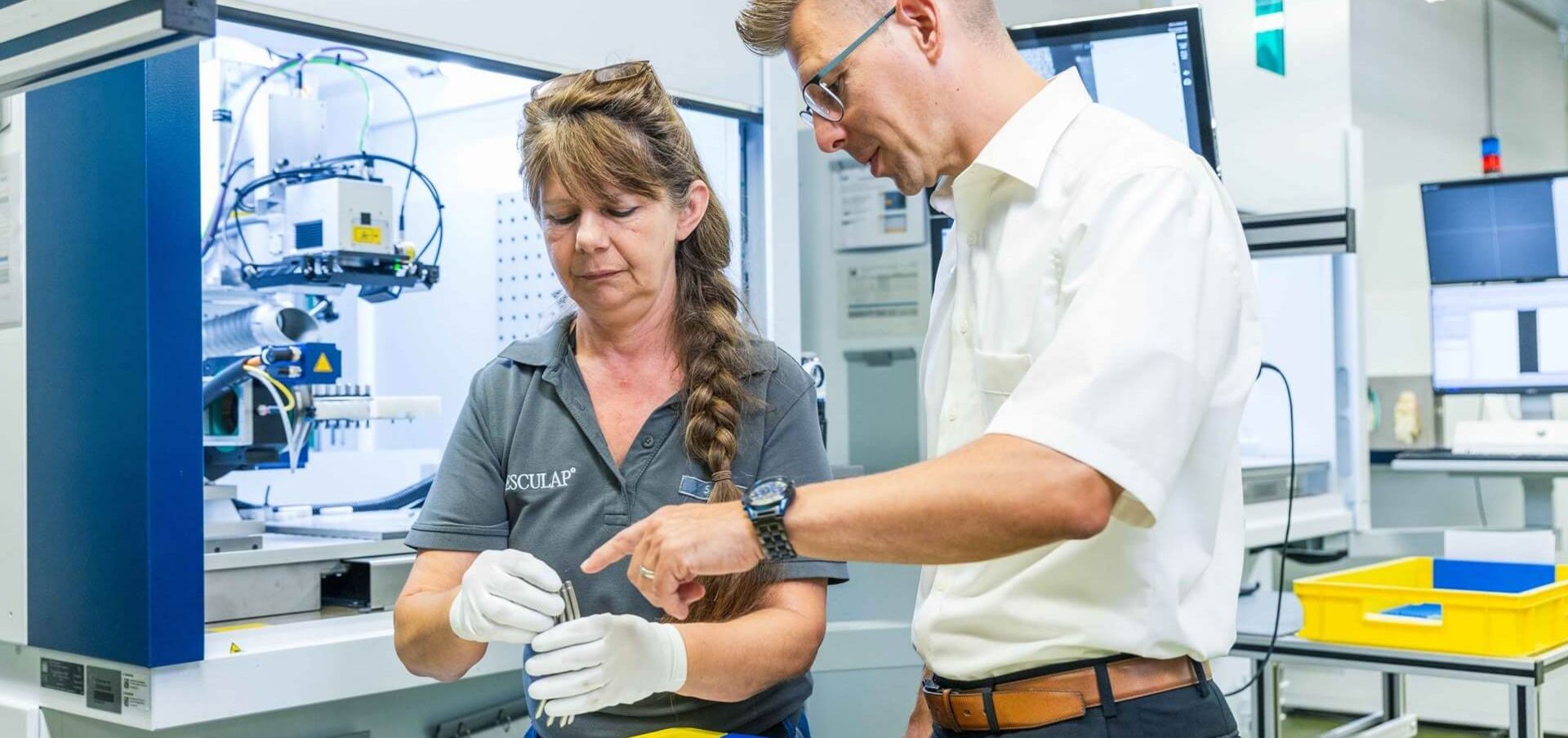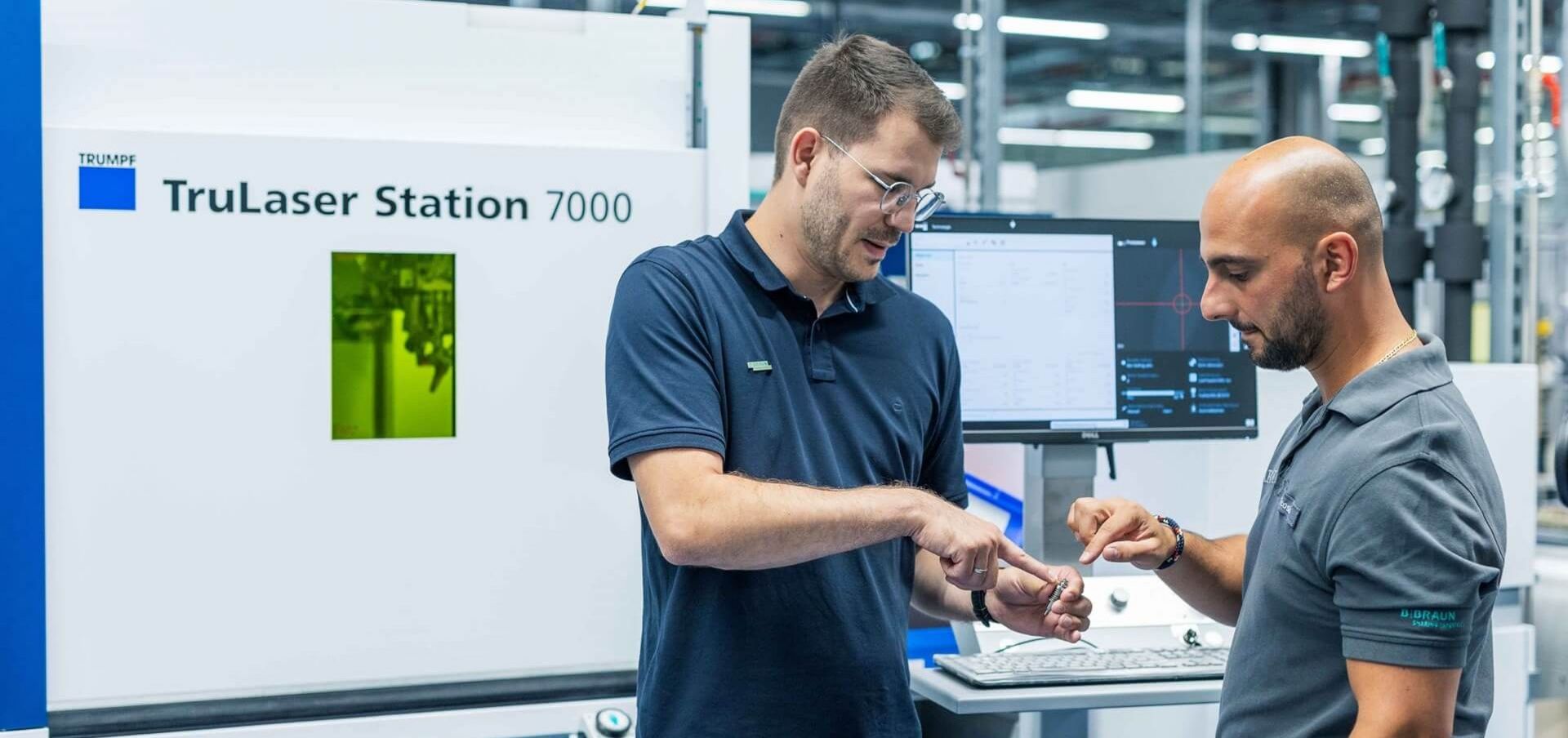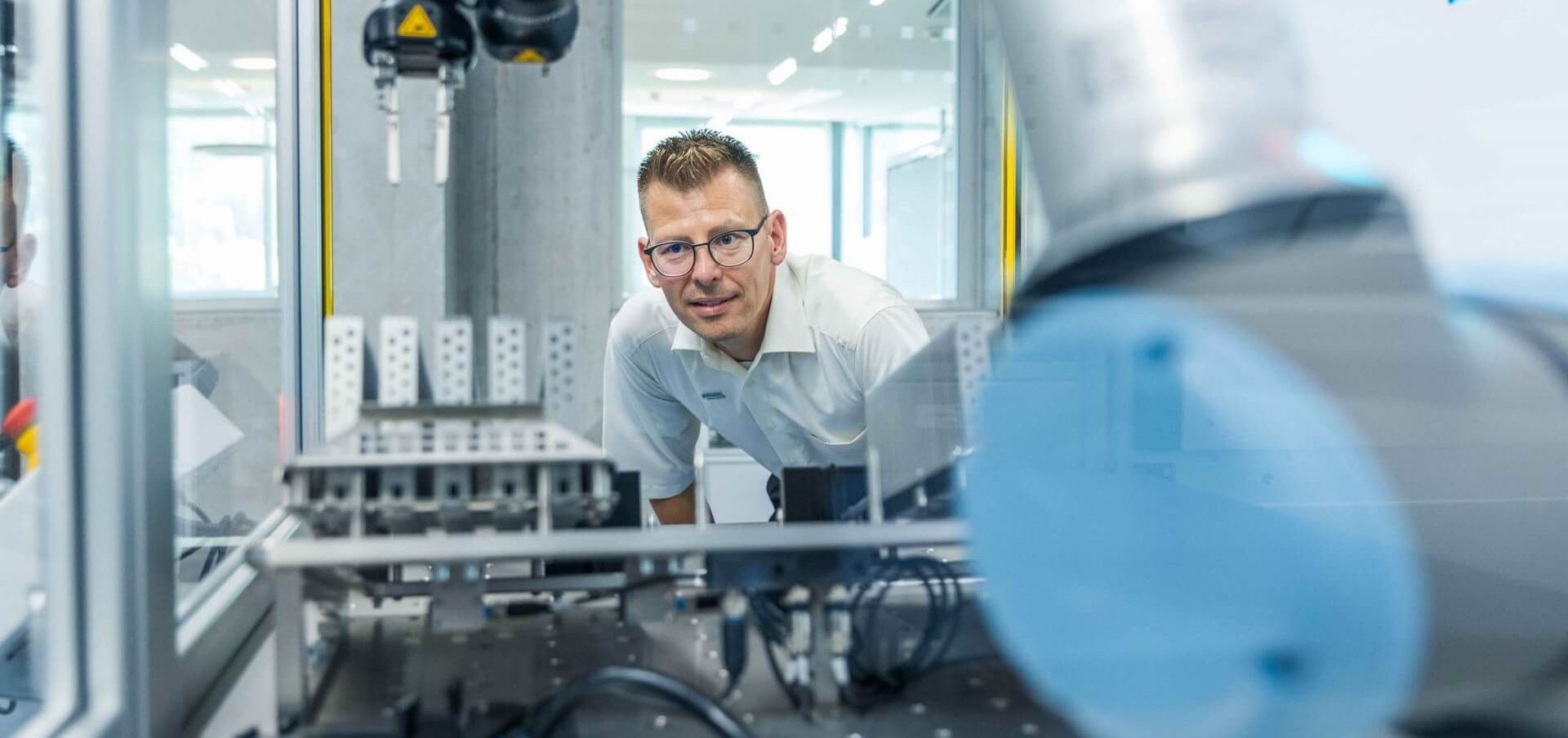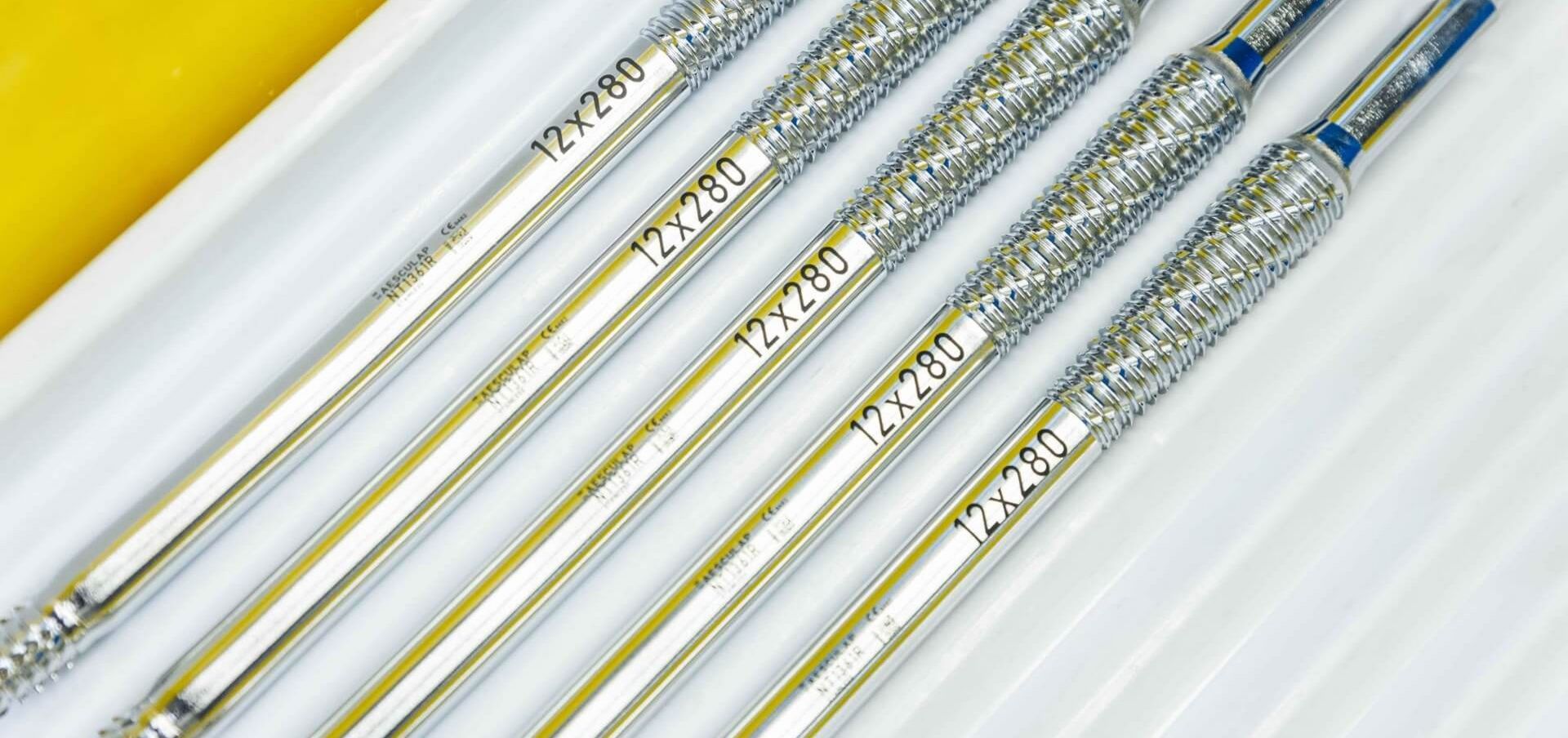The southern region of Baden-Württemberg is the heartland of medical technology. The quiet town of Tuttlingen lies about 40 kilometres northwest of Lake Constance. The Swabian district town, with 35,000 inhabitants, is also the global hub for medical technology. Some 600 companies manufacture surgical and medical products in the town. Aesculap, the oldest local medical technology company and a long-standing part of the B. Braun medical technology group, is located right next to the train station.
But that is only half the story. Aesculap operates at 15 sites worldwide, each manufacturing products for the entire group while specialising in different areas. While the three Tuttlingen plants produce surgical instruments, conventional and 3D-printed implants, sterile containers and motor systems, the Suzhou plant in China specialises in manufacturing forceps and bone punches exclusively for the entire Aesculap Group.
Tuttlingen acts as the lead plant, explains Marc Laufer, Vice President of Engineering at Aesculap in Tuttlingen: "We are often the technology leader, further developing processes and rolling them out internationally." This approach also extends to new manufacturing methods. When a new process is introduced, the main site conducts initial testing, qualification and validation. The other plants then take delivery of the systems, along with the corresponding standards and parameters.
SHORT PULSES REPLACED BY ULTRASHORT PULSES
This is currently the case with the introduction of the new TruMicro Mark ultrashort pulse laser. These will gradually replace all short-pulse lasers in Aesculap production facilities worldwide. With their ultrashort pulses, they provide significant advantages to medical technology manufacturers in both marking and subsequent cleaning. The microstructuring allows Aesculap to create more durable and resilient markings.
Unlike engraving, no oxide film is formed, which means the inscriptions remain intact even after frequent washing and sterilisation cycles. Additionally, the production process generates less combustion residue. This eliminates the need for additional manual cleaning afterwards. Felix Schmidt, Head of Systems & Security, Production Digitalization at Aesculap AG in Tuttlingen, explains: "We can work even more efficiently with ultrashort pulse lasers. They also offer constant laser power and consistent quality."
It is a promising technology, although replacing all previous lasers with new systems is a monumental task. Laufer and Schmidt, along with their teams and the users, are working together to make this happen. They spent six months testing the processes on a test system featuring a TRUMPF TruMicro Mark 2030 under production conditions, using the results to develop standards. Laufer explains: "The main challenge was to reconcile the various requirements. We offer an extensive range of products, with quantities that vary greatly. This diversity must operate seamlessly on the systems, regardless of which plant in the world they are located in."
In addition to a range of tests, the development process also includes visits to the Laser Application Center (LAC) at TRUMPF in Ditzingen: “We were able to carry out tests on various samples and materials with the TRUMPF experts there,” reports Schmidt. "We have developed a wealth of in-house expertise and typically test new materials independently. However, when we reach our limits or face a very specific application, we always draw on expert support from the LAC. This is especially valuable when introducing new technologies." Laufer adds, "Both sides benefit from this collaborative partnership. New systems don't always run smoothly right from the start. Through our feedback and collaborative efforts on solutions, TRUMPF continues to evolve – and so do we."
RAPID ON-SITE SUPPORT
Felix Schmidt is confident that, in addition to reliable technology, he also receives exceptional service from the laser specialists in Ditzingen. TRUMPF is known for its excellent support and ready availability. No matter where we are in the world, assistance is always quickly accessible in the event of a fault. Our contacts are well-versed in the unique aspects of our market and respond accordingly."
This is particularly important for his colleague, Charlie Zhu. Zhu is responsible for laser applications at the China Instrument Plant in Suzhou. At this facility, a TruMark Station 7000 with a TruMicro Mark 2030 and two TruMark Station 5000s with TruMark 3000 lasers are used. "We mark over one million surgical instruments here every year, often in small and varying batch sizes ranging from ten to 200 pieces. This means we need reliable systems that also allow us to make quick changes."
But beyond reliable machines, Zhu needs one thing above all: "Reliable service! We are a small site, so if one of our systems fails, we lose a quarter of our production capacity." So he is especially delighted that his colleagues in Tuttlingen have been choosing TRUMPF technology for years, and are continuing to do something with the ultrashort pulse lasers. "The service provided by TRUMPF here in Suzhou is simply unbeatable. If we have a problem, we can get help quickly over the phone or online, so we rarely need a service engineer. Spare parts are delivered to our premises by taxi within three hours. This means we can usually solve problems within a day."
Even a huge project like transitioning to new laser technology across all plants worldwide is easier to manage with a partner like TRUMPF. Felix Schmidt knows why: "TRUMPF has a similar company philosophy to ours – quality is at the heart of everything we do. Likewise, the ability to respond to customer requirements. We communicate as equals, openly exchange feedback and take action accordingly. That's what makes our partnership so strong."


















